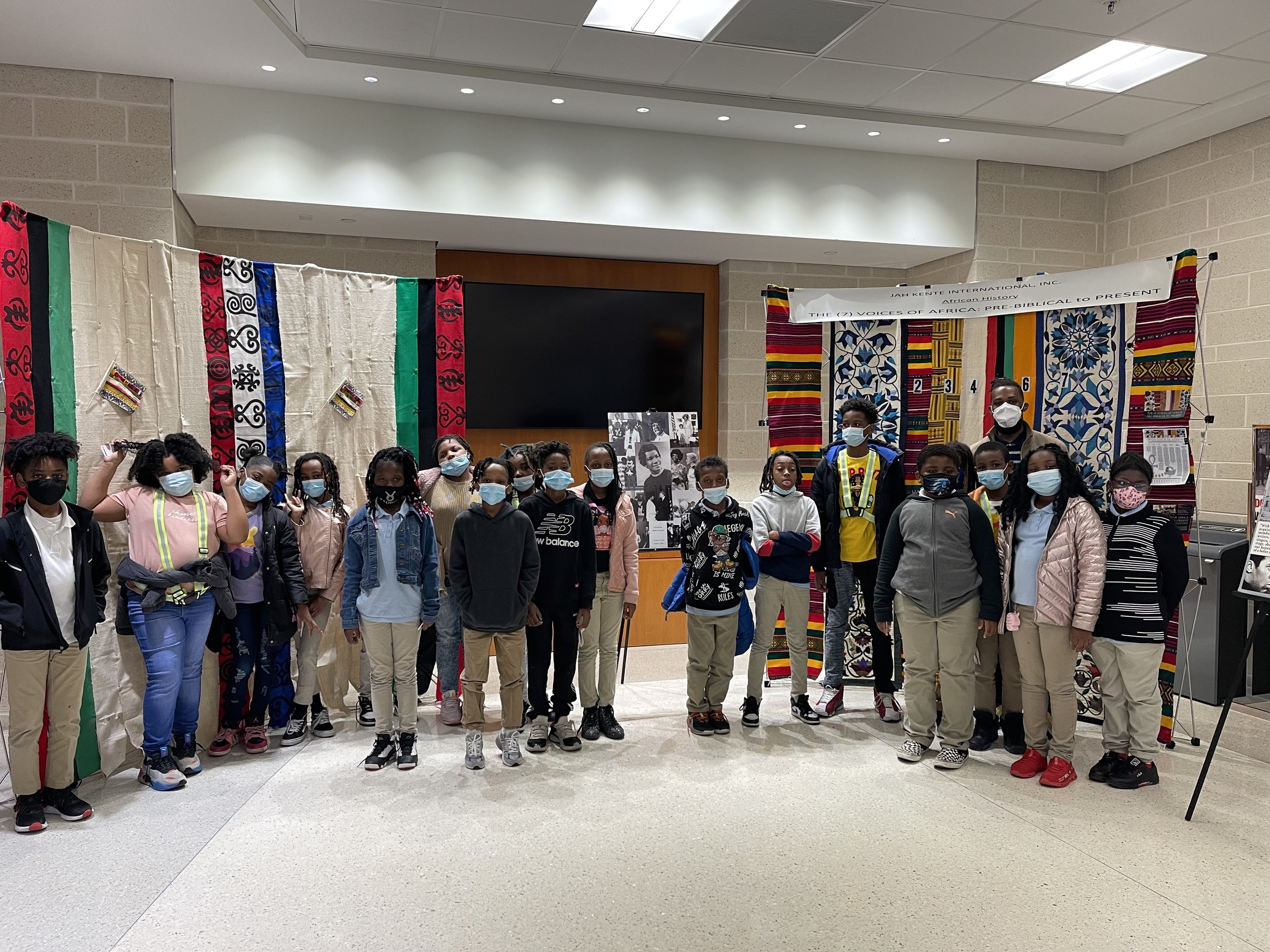Advancing the Promise of Brown v. Board: LaDan Wallace Johnson’s Fight for Educational Equity
Ladan Wallace Johnson’s journey from Topeka, Kansas, to the forefront of higher education advocacy is a testament to the enduring legacy of Brown v. Board of Education. Fueled by a belief in education as a transformative tool, Ladan has dedicated his career to dismantling systemic inequities and empowering students to thrive. Whether researching how physical learning environments impact student well-being or influencing key policies to expand educational opportunities, Ladan’s work reflects a deep commitment to equity and inclusion. “The seeds you’re planting will grow, maybe not in your time, but in due time,” he says, urging others to join the fight for meaningful change.
By Minetre Martin
For LaDan Wallace Johnson, education has been more than a pathway to opportunity—it’s been a lifeline. Growing up in Topeka, Kansas, where the Brown v. Board of Education case began, LaDan’s early years were deeply connected to its legacy.
“I grew up in a smaller Midwestern city, which was the base of Brown v. Board of Education, so my background was unique, but I didn’t really know it until I left.”
The decision, which promised equal access to education for Black students, shaped the well-funded public schools LaDan attended. As a Black student in a predominantly white school system, he benefited from resources and representation that were a direct result of the fight for educational equity. “Growing up as a Black kid from a low-income background, I didn’t know it at the time, but my education was fully resourced, and representation was never lacking in the curriculum and materials taught,” he shares.
These experiences fueled his belief in education as a transformative tool—a belief rooted in the progress made by Brown v. Board but tempered by the understanding that the fight for equity was far from over. However, that belief was tested when LaDan attended a historically Black college and university (HBCU).
“I was sleeping on concrete floors with mold buildup and leaky plumbing growing up,” he recalls. “I had worked so hard to reach this milestone, expecting college to be a step toward a better life. Instead, I found myself in conditions no different from the struggles I thought I had left behind.”
The experience shattered the illusion of progress, forcing LaDan to confront how deeply inequities were embedded—even in spaces meant to uplift marginalized communities.
After over a decade as an educator in the Mississippi Delta and other under-resourced schools, LaDan shifted his focus to higher education, recognizing its potential to help students take ownership of their futures and break generational barriers.
“I saw college education as an emancipation for people who had been mentally, physically, and emotionally subjugated by systems not designed for them to succeed,” he explains.
This passion now drives his work in higher education, where LaDan uses research to influence policy and explore the critical link between physical learning environments and student well-being. His goal is clear: to ensure students aren’t forced to thrive despite their circumstances but are empowered because of them. His findings on poor infrastructure, particularly in underfunded HBCUs, have sparked important conversations among policymakers about equitable school funding.
As an Education Reform Champion, LaDan’s research has helped advance key policies, including a 3.1% increase in public charter school funding, $23 million for secondary pathways to college and career, and the expansion of dual enrollment programs through SR12-13. These achievements reflect his focus as a PhD student at Howard University, where he studies the intersection of student wellness, infrastructure, and equity.
From Topeka to the forefront of higher education advocacy, LaDan Wallace Johnson’s journey is a testament to resilience and the pursuit of equity. By combining research and advocacy, he honors the legacy of Brown v. Board of Education while paving the way for a future where every student has the tools to succeed and the freedom to dream.
When asked what advice he would give to those looking to get involved in education advocacy, Ladan says:
"Show up.”
“We don’t have all the answers—it’s a collaborative effort. Just be present, put boots on the ground, and don’t let your voice be silenced. The seeds you’re planting will grow, maybe not in your time, but in due time."
From the Delta to DC: How Wilberta Bynum Became a Champion of Change in Education
Wilberta Bynum’s journey from Yazoo City, Mississippi, to Washington, DC, is a testament to resilience and purpose. As the tenth of eleven children, she grew up in a family that valued education deeply. Now, as a leading advocate, she empowers families and fights for systemic reforms to ensure every child, regardless of background, has a fair shot at success. “Parents are the backbone of change,” she says.
By Minetre Martin
Wilberta’s belief in transformation is deeply personal. Growing up as the tenth of eleven children in Yazoo City, Mississippi, she experienced firsthand the power of resilience, hard work, and community. Today, as a leading advocate for education reform in Washington, DC, Wilberta’s life is a testament to what’s possible when passion meets purpose.
Raised in a faith-filled home by parents who valued discipline, education, and hard work, Wilberta grew up surrounded by love and resilience. Her mother, a cosmetologist, and her father, a butcher, achieved what seemed impossible in their small Delta town: ensuring all 11 of their children went to college. Wilberta’s childhood was rich with mentors who opened her eyes to life’s possibilities and taught her to dream beyond the limit of her surroundings, whether sewing and cooking with her home economics teacher to performing in show choir.
These early experiences laid the foundation for a lifelong belief in the transformative power of education and community.Wilberta’s professional journey began with a cosmetology degree, leading her to open five successful salons and travel nationwide as an educator for prominent beauty brands like Mizani. However she soon realized that colleagues with advanced degrees were progressing further, sparking her return to school.
Determined to grow, she earned a degree in business administration, studied abroad in Madrid, Spain, developed and ran the study abroad program at Alabama A&M, and later joined Howard University to train as a foreign service officer.
But her path took an unexpected turn when substitute teaching in DC Public Schools opened her eyes to the profound inequities in education - an experience that ultimately redirected her life’s purpose. In DC, Wilberta witnessed stark inequities plaguing public education across neighborhoods— gaps that left Black, Brown, English Language Learners, and students with special needs without the resources they deserved. Determined to make a difference, she earned her master’s degree in teaching and became a passionate advocate for families. Her work included guiding families to navigate complex systems and ensuring students received proper evaluations, IEP amendments, and support. Wilberta’s efforts have given parents the tools to advocate for their children and inspired communities to believe in their power to make lasting change.
During the pandemic, Wilberta created DC’s first virtual cosmetology curriculum, exposing the lack of standardized frameworks in Career and Technical Education. This fueled her mission to push for systemic reforms including curricula designed by minority leaders to reflect the diversity of students they serve.
“Teachers need to see themselves as contributors to the systems they work in.”
Wilberta’s collaboration with Education Reform Now Advocacy (ERNA) has been instrumental in amplifying her voice and building coalitions for change.
“ERNA made me feel like I’m not alone. They’ve given me the tools to fight for the change our students deserve.”
Wilberta’s journey is a testament to the power of purpose and persistence. She stays grounded through introspection, meditation, and surrounding herself with positive energy. “Seeing families regain hope and students thrive fuels me,” Wilberta says. Her advice to aspiring advocates is simple: “Join a community. Together, we can achieve what feels impossible.”
From Yazoo City to the forefront of education reform in DC, Wilberta Bynum’s journey is a powerful reminder that purpose and persistence can change the world.













